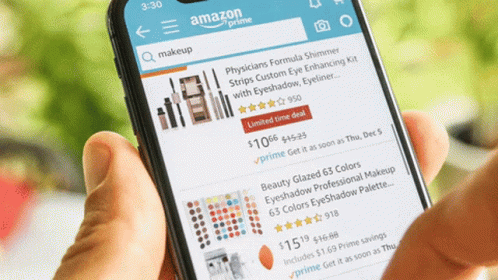The Most Successful CRM Strategies and What We Can Learn From Them

A well-executed CRM strategy can transform customer relationships, boost retention, and drive revenue. Some of the biggest brands have turned CRM into an art form, using data-driven magic, automation wizardry, and personalization that feels almost psychic. Let's dive into the best of the best and see what golden nuggets we can steal, I mean, learn from them.
1. Amazon – Personalization at Scale

Amazon is a prime example of how a CRM strategy can enhance customer experience. Their recommendation engine suggests products based on browsing history, past purchases, and customer preferences, making shopping highly personalized. Additionally, Amazon Prime offers exclusive deals and fast shipping, incentivizing customer loyalty and repeat purchases.
Key Takeaways:
- Use data to make customers feel like you get them
- Implement AI-driven recommendations to boost engagement and sales
- Leverage automation to send timely and relevant offers
· Provide exclusive benefits to increase customer retention
2. Starbucks – Loyalty and Engagement

Starbucks' rewards program is CRM on caffeine. Their app tracks your caffeine addiction and rewards you for it, offering personalized perks, birthday freebies, and just enough incentives to keep you sipping their overpriced lattes. But I need to give credit where it’s due… Starbucks’ rewards program is one of the most successful CRM implementations. It’s really set them apart in a highly competitive industry. Their app tracks purchases and offers personalized rewards based on buying habits. Customers receive exclusive deals, birthday treats, and incentives to keep them engaged.
Key Takeaways:
- Reward customer loyalty with personalized incentives
- Use mobile apps and digital engagement to enhance CRM efforts
- Gather customer data to tailor promotions and offers
3. Apple – Seamless Omnichannel Experience

Apple’s CRM strategy revolves around creating a seamless omnichannel experience. Whether online, in-store, or through customer support, Apple ensures a consistent and personalized journey. Their Genius Bar appointments, order tracking, and Apple ID integrations provide a frictionless experience.
Key Takeaways:
- Maintain consistency across all customer touchpoints.
- Offer personalized service through CRM tools and data integration.
- Ensure customer interactions are smooth, from support to sales.
4. Netflix – Data-Driven Customer Retention

Netflix uses advanced analytics and CRM to keep subscribers engaged. Their recommendation algorithm, personalized content suggestions, and email re-engagement campaigns help retain users and reduce churn. Additionally, Netflix continuously tests user interfaces and adjusts content promotion strategies to increase user satisfaction and time spent on the platform.
Key Takeaways:
- Use data analytics to anticipate customer needs and preferences.
- Implement retention strategies like personalized outreach and engagement emails.
- Automate CRM processes to deliver timely content and recommendations.
5. Sephora – Omnichannel Customer Engagement

Sephora’s CRM strategy integrates online and in-store experiences through their Beauty Insider program. Customers receive personalized product recommendations, loyalty rewards, and tailored content based on their purchasing habits.
Key Takeaways:
- Integrate digital and physical experiences for a seamless customer journey.
- Use CRM data to personalize marketing efforts across all channels.
- Create loyalty programs that encourage repeat purchases.
Final Thoughts
The most successful CRM strategies focus on personalization, automation, omnichannel integration, and data-driven decision-making. By learning from these industry leaders, you can refine your CRM approach to enhance customer relationships and drive long-term success.
Want to take your CRM strategy to the next level? Stay tuned for more insights on Campaign Geeks, where we geek out over data-driven marketing strategies!

